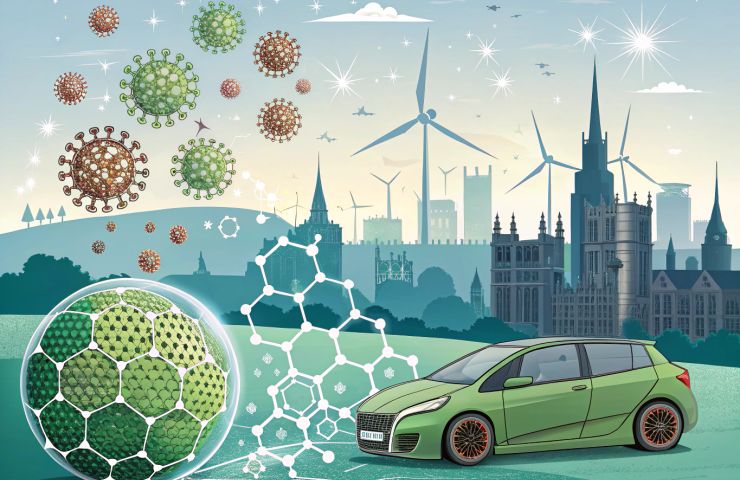
EQT Foundation Invests in Milvus Advanced’s Nanocatalysts
November 24, 2025On November 2025, the EQT Foundation dropped €200,000 into Oxford-based startup Milvus Advanced—part of a £5 million seed round led by Hoxton Ventures. The idea? To turbocharge their scale-up of nanomaterial catalysts that could kick platinum group metals to the curb in green hydrogen production and low-carbon fuel setups.
Seed Funding Fuels Catalyst Innovation
- Investor: EQT Foundation, the philanthropic arm of the global EQT AB Group.
- Lead backer: Hoxton Ventures, specialists in early-stage European tech.
- Amount: €200,000 from EQT Foundation within a larger £5 million injection.
- Purpose: Scale up manufacturing, nail down industrial performance, and beef up the team.
Deep Dive into Nanomaterial Catalysts
Milvus Advanced is cooking up catalysts from everyday metals like copper, nickel and iron. Their secret sauce? A platform that engineers nano-architectures to rival—or even outshine—the pricey platinum group metal (PGM) catalysts you see in electrolyzers (powering electrolysis) and fuel cells. Early lab results hint at a jaw-dropping 70% reduction in catalyst costs while matching PGM performance at roughly 1% of the material expense. Now, thanks to EQT Foundation‘s backing, they’re rolling out pilot lines and third-party tests to prove it at industrial scale.
Scaling in Oxford’s Innovation Hub
Situated in Oxford—a hotspot for materials science and sustainable energy research—Milvus is tapping into the University of Oxford spin-out ecosystem. The fresh capital will bankroll a pilot production facility right next door to their existing lab, letting them crank out batches big enough for partner trials and those all-important first customer orders.
Strategic Networks and Partnerships
Money’s great, but connections matter just as much. Through EQT Foundation, Milvus gets introductions to heavy hitters like Air Liquide, SunGreenH2, Bekaert, Nel Hydrogen and Plug Power. Imagine these industry players slapping Milvus’s catalysts into their commercial electrolyzers, fuel cells or refining lines—talk about a fast track to market.
Business Strategy and Market Dynamics
High PGM prices and supply headaches have tripped up green hydrogen adoption for years. Swap in cheap, abundant metals, and you slash the levelized cost of hydrogen production via electrolysis—exactly what electrolyzer makers need to hit price points critical for industrial decarbonization and clean ammonia production. It’s a game-changer for anyone serious about zero-carbon processes.
Historic Shift in Catalyst Supply Chains
This funding rounds out a broader trend: backers funneling cash from lab breakthroughs all the way to market-ready climate tech. With governments and corporates chasing net-zero targets, ditching critical raw materials for sustainable alternatives isn’t just smart—it’s essential. Milvus’s progress, hand-in-hand with EQT Foundation, could reshape how we make and store hydrogen.
Implications for Industrial Decarbonization
If these nanocatalysts catch on, expect a ripple effect: leaner supply chains, less mining for rare metals, and a flood of investments into clean-energy infrastructure. Cheaper catalysts mean more competitive electrolyzers—paving the way for grid-scale hydrogen, zero-emission transport and eco-friendly chemical manufacturing.
Looking Ahead
With seed funding in the bag, Milvus Advanced has its eyes set on the next 12–18 months: proving out tech at industrial volumes, locking down commercial deals and swelling the R&D crew. Keep an eye on those pilot projects slated for late 2026—if they nail it, follow-on funding could be just around the corner, cementing Milvus’s spot in the hydrogen production revolution.
About Milvus Advanced
Founded by an Oxford-trained materials scientist, Milvus Advanced is all about next-gen nanomaterial catalysts that ditch expensive platinum group metals in clean-energy gear. Their mission? Drive down costs, cut supply-chain risks and fast-track the global transition to sustainable energy.



 With over 15 years of reporting hydrogen news, we are your premier source for the latest updates and insights in hydrogen and renewable energy.
With over 15 years of reporting hydrogen news, we are your premier source for the latest updates and insights in hydrogen and renewable energy.